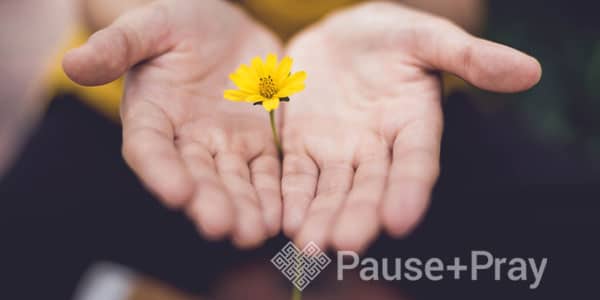MELBOURNE, Australia (CNS) — Philippine elections are May 9, and a longtime advocate for Filipino farmers will be watching closely — from afar.
“The violence has already started, with some people already being killed. We’re constantly trying to monitor the situation and to get it out into the public,” said Sister Patricia Fox, 75, a member of the Sisters of Our Lady of Sion deported from the Philippines in 2018.
Sister Fox ministered in the Philippines for 28 years. A lot of her work involved human rights advocacy, including speaking out on issues affecting the rural poor and working with them for change. She joined street protests, lobbied against mining companies that sought to strip farmers of their land, and visited military camps or prisons, trying to locate people who had been arrested.
The administration of Philippine President Rodrigo Duterte accused her of taking part in illegal political activities — attending protest rallies and visiting prisoners — and of speaking out against the government.
Now back in Australia, Sister Fox remains active in this ministry by focusing on solidarity work online with those in the Philippines and with like-minded groups in Australia.
Reflecting on the violence inflicted on Filipinos, particularly those in rural areas fighting for their land against large mining corporations and the military who enforce the government’s brutal policies, Sister Fox told Global Sisters Report she believes “the violence has gotten worse” since her departure.
“The imprisonments have kept going, too, and no one is immune. Whether you’re a politician, a religious, a farmer or worker, it doesn’t matter. You are at risk.”
She’s also aware of the impact of the COVID-19 pandemic, which caused many rallies, meetings and movement among the people to stop.
The pandemic has only compounded the situation for poor rural and urban dwellers, unable to access adequate health care or COVID-19 tests, Sister Fox told Global Sisters Report. “Some of the young farmer organizers that I knew sent me a message saying, ‘Can you send over some money because we need to get tested’ — it was 4,000 pesos (US$77) or something like that per test, and these are people struggling to put rice on the table.”
Sister Fox is also mourning two friends in the Philippines who recently died, she believes, at least in part because of actions by the repressive government. One died of COVID-19 while in custody last year, arrested on false charges, she said. The other was a National Democratic Front peace negotiator she had worked with who was tortured and killed a year ago. Sister Fox said she suspects government agents were behind the killing, but nothing has yet been proven.
“So that’s hard because at times like that, I’d love to be there with the family, just to hug the family,” she said. “That’s when I really feel the distance. I used to love being with the people, the closeness, and how I was so much a part of their lives, and how much I loved being in the rural areas with the people.”
She takes some consolation in knowing there were some “small victories” for those for whom she advocated. She had spent several years with the Justice and Peace Action group in Aurora, a rural and mountainous area north of Manila, where land was under threat from mining and logging companies. The group worked with local farmers and Indigenous peoples to gather information and data and engaging with government offices, including the Department of Environment and Natural Resources, and mining never began in the area. Sister Fox attributed this to the “strong and coordinated movement” of everyone involved.
“You could see the confidence growing in those speaking out for their rights,” she said.
She also was heartened when farmers were granted land from corporations, enabling them to grow their own vegetables and crops. “They were so excited to be able to offer you something when you visited. They have such dignity, even though they were still so poor and still under some threat.”
Sister Fox was motivated in being with the people because of their “determination, enthusiasm, love and support.” And, she added, “their sense of humor! Despite everything, they have a sense of humor and manage to make a joke about everything.”
She also takes some solace in knowing that there are still seven other Our Lady of Sion sisters in the Philippines ministering in various capacities. One of the sisters is employed by the Department of Social Welfare.
Even though she is not personally in touch, Fox is determined to remain connected with those fighting for justice in the Philippines, and to make their issues and struggles known in Australia. She has joined groups against human trafficking and has served as chair of the Australian chapter of the International Coalition of Human Rights in the Philippines, a role that keeps her informed of abuses that are taking place.
She is hopeful that the national elections in the Philippines will see a change in government that will allow her name to be struck off the blacklist so that she can return, or at least visit, sooner than later. If not, in two years she can apply to the courts to have her name struck off the list.
In anticipation, she joked, her “bags are packed.”
By Fiona Basile | Catholic News Service







News & Commentary
After expulsion from Philippines, nun continues solidarity work
MELBOURNE, Australia (CNS) — Philippine elections are May 9, and a longtime advocate for Filipino farmers will be watching closely — from afar.
“The violence has already started, with some people already being killed. We’re constantly trying to monitor the situation and to get it out into the public,” said Sister Patricia Fox, 75, a member of the Sisters of Our Lady of Sion deported from the Philippines in 2018.
Sister Fox ministered in the Philippines for 28 years. A lot of her work involved human rights advocacy, including speaking out on issues affecting the rural poor and working with them for change. She joined street protests, lobbied against mining companies that sought to strip farmers of their land, and visited military camps or prisons, trying to locate people who had been arrested.
The administration of Philippine President Rodrigo Duterte accused her of taking part in illegal political activities — attending protest rallies and visiting prisoners — and of speaking out against the government.
Now back in Australia, Sister Fox remains active in this ministry by focusing on solidarity work online with those in the Philippines and with like-minded groups in Australia.
Reflecting on the violence inflicted on Filipinos, particularly those in rural areas fighting for their land against large mining corporations and the military who enforce the government’s brutal policies, Sister Fox told Global Sisters Report she believes “the violence has gotten worse” since her departure.
“The imprisonments have kept going, too, and no one is immune. Whether you’re a politician, a religious, a farmer or worker, it doesn’t matter. You are at risk.”
She’s also aware of the impact of the COVID-19 pandemic, which caused many rallies, meetings and movement among the people to stop.
The pandemic has only compounded the situation for poor rural and urban dwellers, unable to access adequate health care or COVID-19 tests, Sister Fox told Global Sisters Report. “Some of the young farmer organizers that I knew sent me a message saying, ‘Can you send over some money because we need to get tested’ — it was 4,000 pesos (US$77) or something like that per test, and these are people struggling to put rice on the table.”
Sister Fox is also mourning two friends in the Philippines who recently died, she believes, at least in part because of actions by the repressive government. One died of COVID-19 while in custody last year, arrested on false charges, she said. The other was a National Democratic Front peace negotiator she had worked with who was tortured and killed a year ago. Sister Fox said she suspects government agents were behind the killing, but nothing has yet been proven.
“So that’s hard because at times like that, I’d love to be there with the family, just to hug the family,” she said. “That’s when I really feel the distance. I used to love being with the people, the closeness, and how I was so much a part of their lives, and how much I loved being in the rural areas with the people.”
She takes some consolation in knowing there were some “small victories” for those for whom she advocated. She had spent several years with the Justice and Peace Action group in Aurora, a rural and mountainous area north of Manila, where land was under threat from mining and logging companies. The group worked with local farmers and Indigenous peoples to gather information and data and engaging with government offices, including the Department of Environment and Natural Resources, and mining never began in the area. Sister Fox attributed this to the “strong and coordinated movement” of everyone involved.
“You could see the confidence growing in those speaking out for their rights,” she said.
She also was heartened when farmers were granted land from corporations, enabling them to grow their own vegetables and crops. “They were so excited to be able to offer you something when you visited. They have such dignity, even though they were still so poor and still under some threat.”
Sister Fox was motivated in being with the people because of their “determination, enthusiasm, love and support.” And, she added, “their sense of humor! Despite everything, they have a sense of humor and manage to make a joke about everything.”
She also takes some solace in knowing that there are still seven other Our Lady of Sion sisters in the Philippines ministering in various capacities. One of the sisters is employed by the Department of Social Welfare.
Even though she is not personally in touch, Fox is determined to remain connected with those fighting for justice in the Philippines, and to make their issues and struggles known in Australia. She has joined groups against human trafficking and has served as chair of the Australian chapter of the International Coalition of Human Rights in the Philippines, a role that keeps her informed of abuses that are taking place.
She is hopeful that the national elections in the Philippines will see a change in government that will allow her name to be struck off the blacklist so that she can return, or at least visit, sooner than later. If not, in two years she can apply to the courts to have her name struck off the list.
In anticipation, she joked, her “bags are packed.”
By Fiona Basile | Catholic News Service